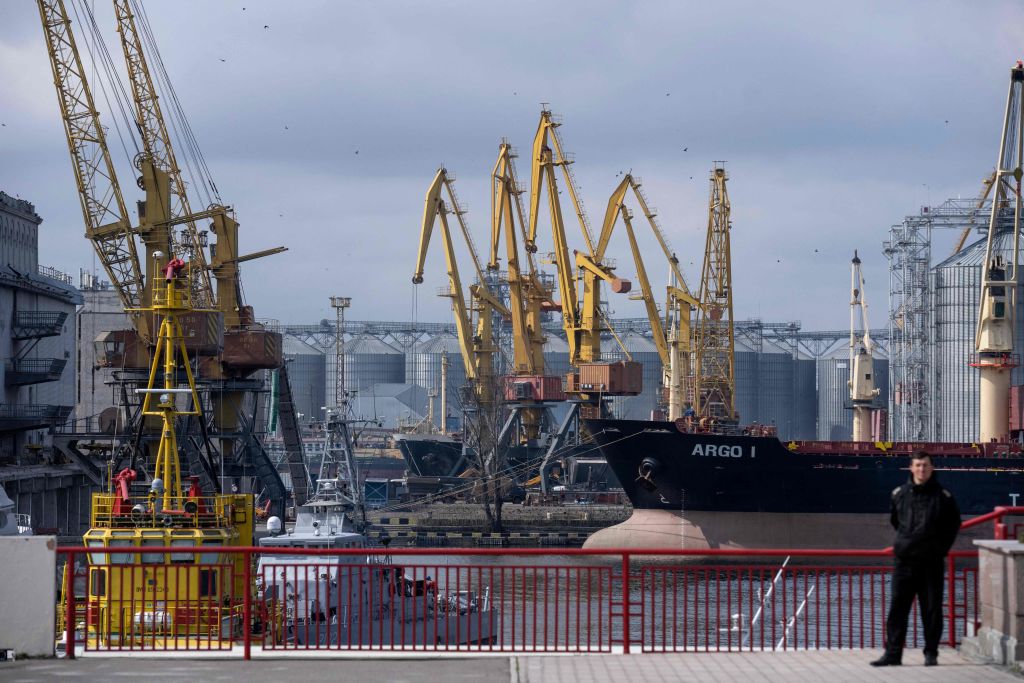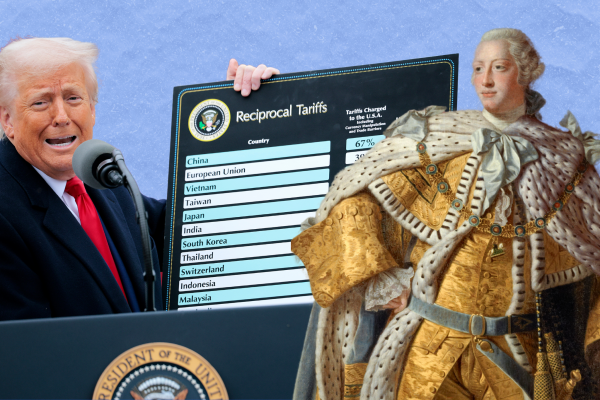Russia’s decision Monday to pull out of the year-old Black Sea Grain Initiative and its subsequent attacks on Ukrainian ports threaten to cut vulnerable regions of the world from much-needed grain and escalate the war. Now the United Nations, Turkey, and Western leaders are scrambling for a solution.
The deal, reached last July to lift Russia’s wartime blockade on Ukrainian agricultural exports from three Black Sea ports, had played a crucial role in alleviating global food shortages despite the ongoing conflict. Russian officials had long accused the West of violating the terms of the agreement, which carved out Russian food products and fertilizer exports from Western sanctions. Yet Russia exported a record-breaking 57 million tons of grain in the 2022-2023 season and rejected a European Union proposal to allow a Russian bank to make international transactions again.
Russia’s withdrawal from the initiative, which relied entirely on both sides’ mutual commitment not to attack merchant vessels, is having immediate repercussions. Russian foreign ministry spokeswoman Maria Zakharova warned Monday that Russia could no longer guarantee the safety of ships traversing the shipping route. To drive the message home, Russia has carried out several missile and drone attacks targeting Ukraine’s Black Sea ports of Odessa and Chornomorsk since pulling out of the initiative, striking at infrastructure used for grain shipments as well as residential areas.
“Russian terrorists deliberately targeted the infrastructure of the grain agreement,” Ukrainian President Volodymyr Zelensky wrote on Telegram Wednesday, “and every Russian missile is a blow not only to Ukraine, but also to everyone in the world who seeks a normal and safe life.”
According to Yuriy Sak, an adviser to Ukraine’s defense minister, Russian strikes on Ukrainian ports have destroyed 60,000 tons of grain since Moscow’s exit from the deal. “They’ve deliberately targeted the port infrastructure, the warehouses used for grain storage,” Sak tells The Dispatch. “They’ve already created a blockade in the Black Sea,” he added, saying a dozen cargo ships are now stranded at Odessa and Mykolaiv.
Attacking a merchant vessel in transit would mark a major escalation, but Russia may be willing to do it. Its Ministry of Defense announced this week that beginning Thursday, “all ships sailing in the Black Sea to Ukrainian ports will be considered as potential carriers of military cargo” and thereby “considered involved in the war on the side of [Ukraine].”
Exports from Black Sea ports have since ground to a halt, with only one ship making the journey since Monday. Shipments had already slowed prior to Moscow’s formal withdrawal, as Russian officials interfered with ship inspections leading to a backlog in Istanbul.
A similar story played out last fall, as Russia slowed and later halted its participation in the agreement after accusing Ukraine of using grain ships to smuggle weapons and stage attacks. But its retreat from the deal only lasted a few days after Ukraine, Turkey, and the U.N. kept the route going regardless of the Kremlin’s threats—in essence, calling Russian President Vladimir Putin’s bluff.
This time around, Russia appears more willing to make good on its threats. The Ukrainian government has been in talks with Romania and Bulgaria to get more grain out the door via their territorial waters, but it will be difficult to find a route to replace the large volume of food products going through the Black Sea ports.
Before Russia’s departure, the initiative had facilitated the shipment of more than 32 million tons of agricultural freight—primarily corn and wheat—from Europe’s war-torn breadbasket. Of those exports, more than 750,000 tons arrived in countries facing acute food insecurity via the World Food Program. The corridor kept food prices relatively stable for a year, but following its closure wheat futures prices had risen about 9 percent as of Wednesday evening.
“Two combatants coming together with third parties to agree to the shipment of humanitarian aid was unprecedented,” John Stawpert, a senior manager at the International Chamber of Shipping says. “It was a huge success … the ability to ship this absolutely essential cargo through waters where there are considerable security risks.”
One option for keeping the corridor intact would be providing merchant vessels with military escorts. Turkish President Recep Tayyip Erdoğan—who controls the Bosphorus Strait, the entrance to the Black Sea—offered to do as much last week if Putin followed through with his threats to sink the deal. Others have argued that a broader NATO coalition could step in to ensure safe passage.
But NATO officials so far seem reluctant to entertain the possibility, which could lead to a military confrontation with Russia.
“NATO Secretary-General Jens Stoltenberg has condemned Russia’s unilateral decision to pull out of the Ukraine grain deal despite the efforts of our Ally Türkiye and the UN,” a NATO official said in a statement to The Dispatch. “NATO strongly supports efforts by Ukraine and the international community to facilitate the continued export of grain, and several NATO Allies in the region are supporting Ukraine in its efforts to export grain by land. There has been no request for NATO as such to escort grain shipments.”
Turkey, the 2022 deal’s main broker, is trying to flex its diplomatic muscle yet again to bring Moscow back to the table. Turkish Foreign Minister Hakan Fidan has already spoken to his Russian counterpart, Sergey Lavrov, and Erdoğan signaled that he hopes to get Putin to revive the initiative before the Russian president’s visit to Turkey next month. “Despite the statement made today, I believe Russian President Putin wants the continuation of this humanitarian bridge,” Erdoğan told reporters Monday.
But whether Russia is actually considering a return to compliance remains unclear. “There are two options. One is they’re trying to extract, as they tried to do in November, more concessions from particularly the U.N. or the EU,” Eric Edelman, former U.S. ambassador to Turkey, Finland, and under secretary of defense for policy, tells The Dispatch. “Or they’re looking for an excuse to destroy Ukraine’s export capacity by attacking the ports, as they have in the last two nights with these large missile and drone attacks.”
Ukraine and the developing world stand to lose the most in the latter scenario. Russia’s reneging on the deal “will strike a blow to people in need everywhere,” U.N. Secretary-General António Guterres said Monday. “Hundreds of millions of people face hunger and consumers are confronting a global cost-of-living crisis. They will pay the price.”
For Russia, such a pressure campaign could backfire. “The people they’re hurting most are the people they want to influence in a positive way,” says Jim Townsend, former U.S. deputy assistant secretary of defense for Europe and NATO.
“Russia is showing itself as a failed state that is prepared to risk the lives of millions,” says Sak, the Ukrainian defense adviser, adding that the result will be Russia’s global allies waking up to the reality that “Russia is a pariah state which is willing to throw under the bus the interests of any country, any region in pursuit of its own imperial and terrorist ambitions.”







Please note that we at The Dispatch hold ourselves, our work, and our commenters to a higher standard than other places on the internet. We welcome comments that foster genuine debate or discussion—including comments critical of us or our work—but responses that include ad hominem attacks on fellow Dispatch members or are intended to stoke fear and anger may be moderated.
With your membership, you only have the ability to comment on The Morning Dispatch articles. Consider upgrading to join the conversation everywhere.